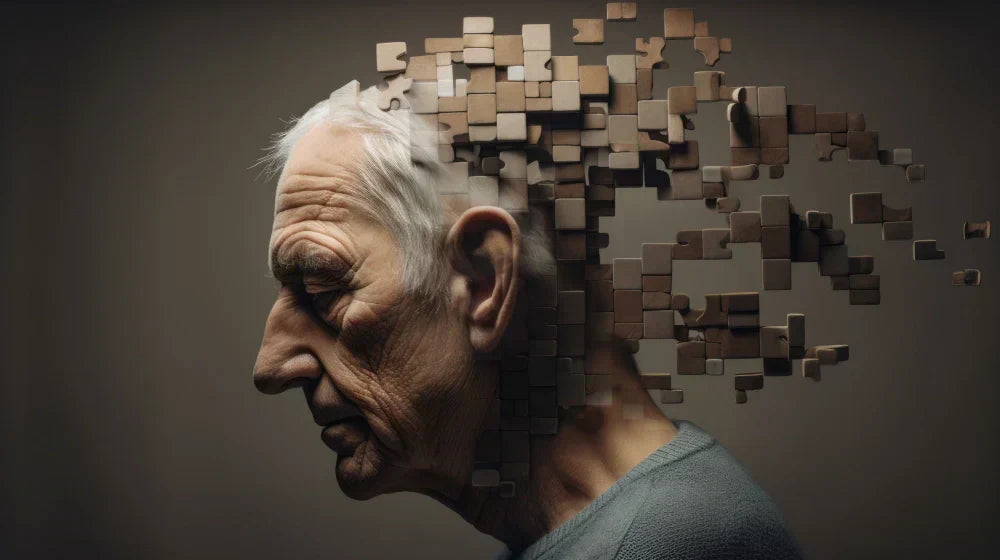What Every Family Should Know About Memory Loss: Types of Memory Loss Natural Solutions

Memory loss can be difficult—for the person experiencing it and for the family around them. While forgetfulness may seem harmless at first, it could be a signal of deeper cognitive issues.
As an Ayurvedic expert, we at Nisarga Herbs believe that early understanding and holistic support can make a big difference.
In this article, we’ll explore the types of memory loss, their causes, effects on families, and how Ayurveda can offer safe, natural help.
Understanding Memory Loss and Its Impact on Families
Memory loss is more than just forgetting things. It can affect how a person lives, thinks, behaves, and connects with others. Fheor families, this means daily challenges—from emotional stress to caregiving responsibilities.
How Does Memory Loss Affect Families?
- Creates confusion and emotional distress
- Shifts roles and responsibilities
- Affects communication and bonding
- Increases physical and mental caregiving demands
When one person forgets, the whole family remembers—and adjusts.
Types of Memory Loss: A Complete Guide
The brain is a complex organ, and so are memory issues. Understanding different types of memory loss disorders can help you support your loved one better.
1. Age-Related Memory Loss
This is a normal part of aging. People may forget names or misplace items but still manage their daily lives.
2. Short-Term Memory Loss
This affects the ability to recall recent information. You might notice repeated questions or forgotten conversations. It's often seen in stress, anxiety, or vitamin deficiencies.
3. Long-Term Memory Loss
This impacts memories formed long ago. It’s common in types of memory loss diseases like Alzheimer’s and other forms of dementia.
4. Amnesia
Amnesia causes partial or complete memory loss and may arise suddenly after trauma, brain injury, or emotional shock.
5. Anterograde and Retrograde Memory Loss
- Anterograde: Can’t form new memories
- Retrograde: Can’t recall old memories
6. Memory Loss After Head Injury
Traumatic brain injury (TBI) is a major cause. Depending on severity, memory may return over time or stay impaired. This is one of the most common types of memory loss after head injury.
What Type of Brain Injury Causes Memory Loss?
Several injuries can lead to memory issues:
- Concussion
- Brain swelling
- Skull fracture
- Hemorrhage (internal bleeding)
- Oxygen deprivation to the brain
Each of these injuries disrupts the brain’s ability to process and store information.
Types of Memory Loss in Psychology
Psychological causes also play a role. These include:
- Depression: Slows down thought and memory processing
- Anxiety: Affects attention and short-term memory
- Stress: Overloads the brain, reducing memory recall
- PTSD: Can lead to memory suppression or selective forgetting
Symptoms and Warning Signs to Watch For
Early signs of memory issues include:
- Repeating questions
- Forgetting appointments or names
- Losing track of time or place
- Difficulty handling daily tasks
- Mood or personality changes
Recognizing these symptoms early can lead to faster support and better outcomes.
Ayurvedic View: Causes of Memory Loss (Smriti Nasha)
In Ayurveda, memory loss is linked to vitiation of Vata dosha, especially in the nervous system (Majja Dhatu). Imbalanced lifestyle, poor diet, stress, and aging weaken the brain’s ability to store and recall memories.
Common Ayurvedic Causes:
- Mental strain (Chinta)
- Poor digestion (Agni Mandya)
- Lack of sleep (Nidra Nash)
- Toxins in the system (Ama)
- Dhatukshaya (tissue depletion)
How Families Can Support a Loved One with Memory Loss
Support is not just about care—it's about compassion and patience.
Helpful Tips:
- Establish routines: Regular timing for meals, medicine, and sleep
- Use memory tools: Calendars, labels, and notes
- Simplify communication: Use short, clear sentences
- Ensure safety: Remove sharp objects, install bathroom handrails
- Encourage independence: Let them do simple tasks on their own
- Offer emotional support: Listen patiently and avoid correcting frequently
When to Seek Professional Help
It’s important to consult a healthcare provider when:
- Memory loss worsens
- Safety is at risk
- Behavioral changes become noticeable
- Daily life is affected
You may also consider professional caregivers, therapists, or support groups for added help.
Ayurvedic Medicine for Memory Loss: A Natural Approach
Modern treatments can help, but Ayurveda offers a holistic, side-effect-free solution. At Nisarga Herbs, our answer is Nuroade Capsules.
Nuroade: Ayurvedic Medicine for Memory Loss
- Clinically tested, US patented
- Supports brain function & memory retention
- Enhances cognitive clarity
- Made with Brahmi, Shankhpushpi, Ashwagandha, and Vacha
- 100% plant-based and safe for long-term use
Final Thoughts: Prevent, Support, Heal
Memory loss is not the end—it's the beginning of a new way to care and connect. Understanding the types of memory loss, their causes, and how Ayurveda can help will empower families to offer the right care at the right time.
At Nisarga Herbs, we blend the wisdom of ancient Ayurveda with modern science to help your loved ones regain mental balance and clarity.
FAQs
Q1: What are the different types of memory loss?
Ans: Age-related, short-term, long-term, amnesia, trauma-induced, and psychological memory loss.
Q2: Can head injury cause memory loss?
Ans: Yes, traumatic brain injuries are a common cause of short- or long-term memory loss.
Q3: Which Ayurvedic herbs help with memory loss?
Ans: Brahmi, Ashwagandha, Vacha, and Shankhpushpi are known for their brain-boosting benefits.
Q4: How does memory loss affect families?
Ans: It changes roles, creates emotional stress, and increases caregiving needs.
Q5: Is Ayurvedic treatment safe for elderly memory loss?
Ans: Yes. Nuroade Capsules are safe and effective for elders experiencing memory decline.


 Mental Wellness
Mental Wellness
 Vital Organ Wellness
Vital Organ Wellness
 Skin Wellness
Skin Wellness
 Immunity Wellness
Immunity Wellness
 Sexual Health
Sexual Health
 Bones Wellness
Bones Wellness
 Daily Wellness
Daily Wellness
 Kids Wellness
Kids Wellness
 Diabetes Wellness
Diabetes Wellness



